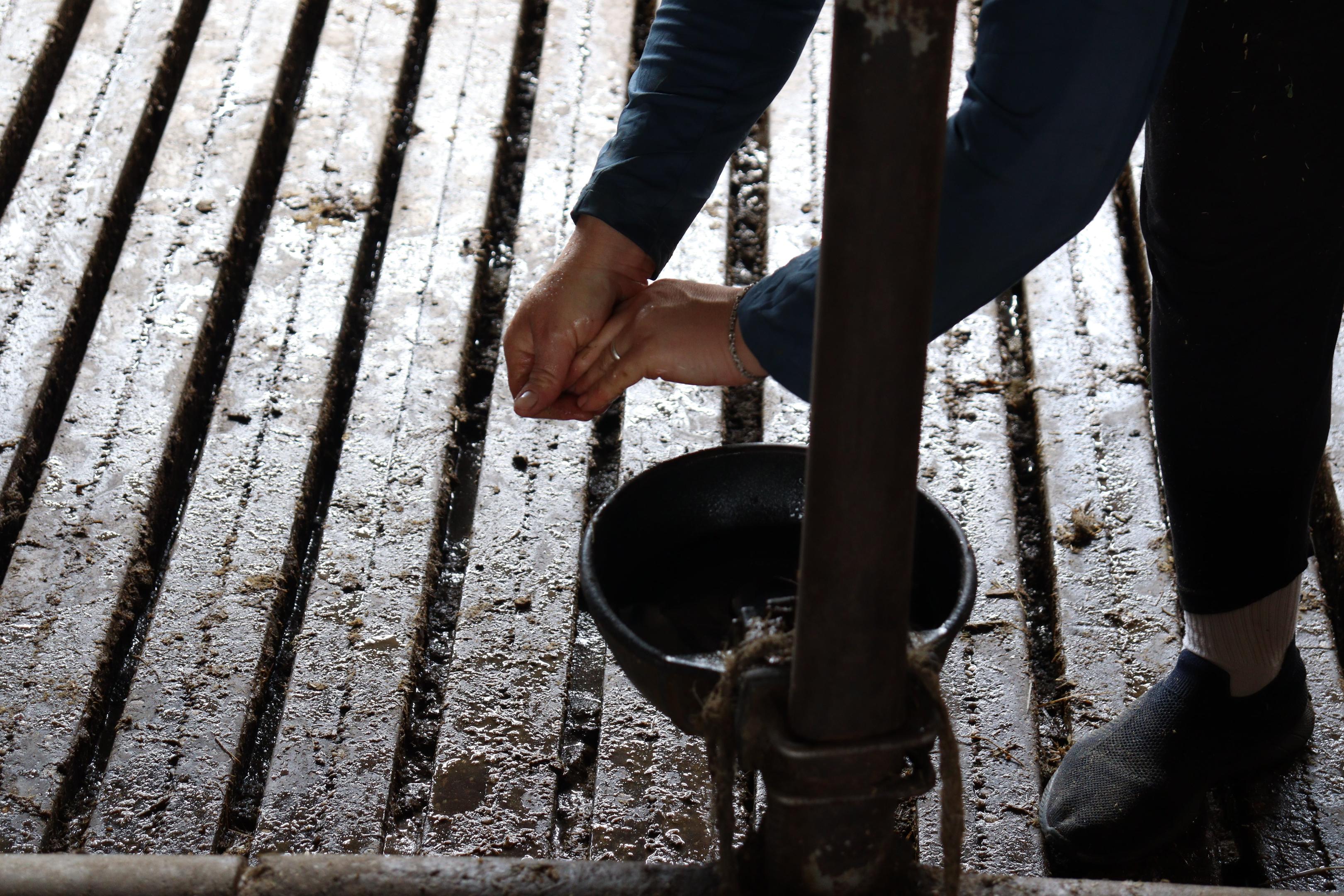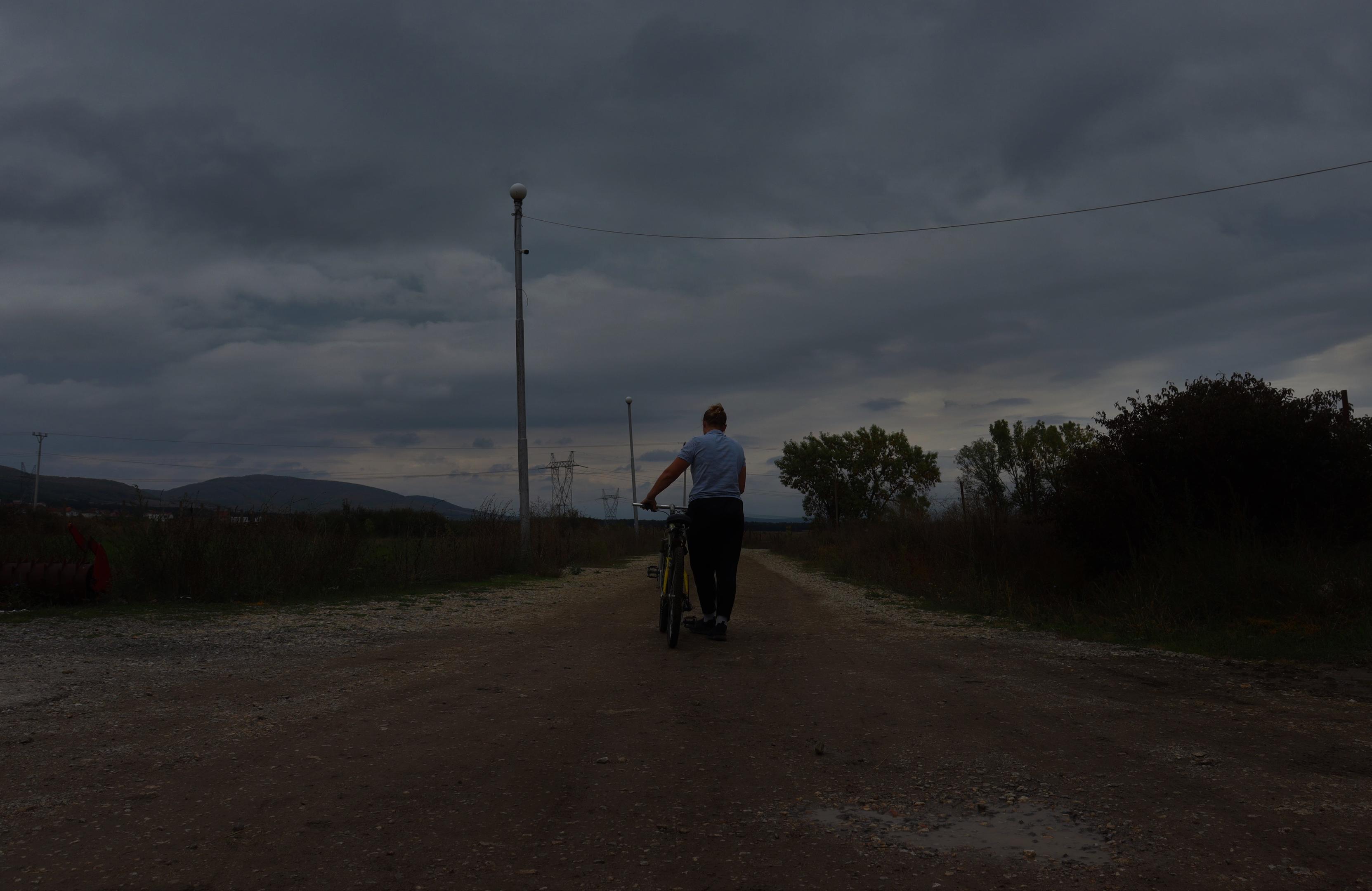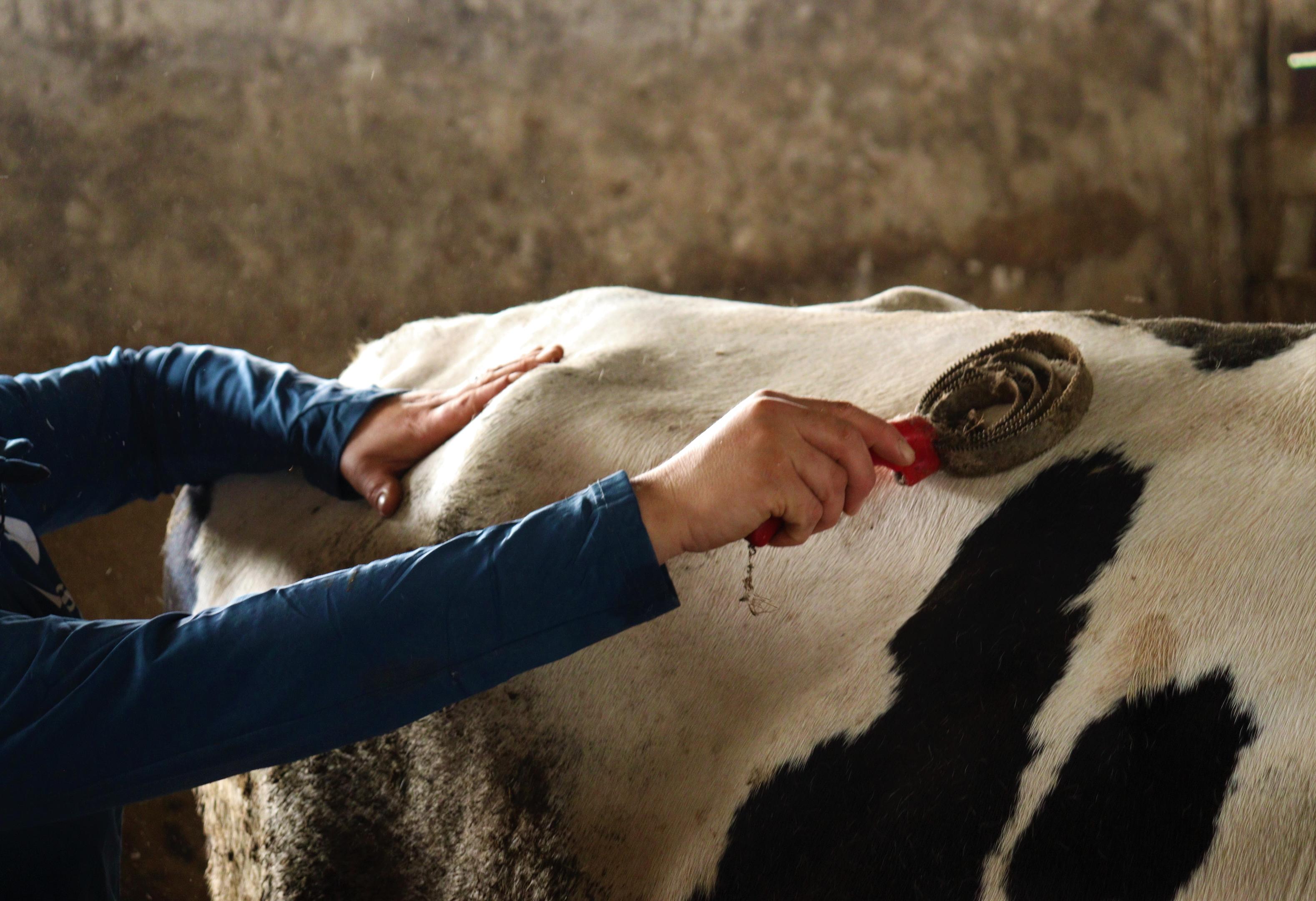Hana’s story moves like a swinging pendulum, but her unwavering encouragement shines through. “If you ask me how I faced this uphill climb to reach this point, I would struggle to find the right words. It is a path I still cannot fully comprehend.” “Was there ever really any other choice for me but to move forward?”
Through the scars, light floods in
January 24, 2025

At just 11 years old, Hana became a conflict-related sexual violence survivor. Still a child, she was unable to grasp the very definition of this traumatic event that changed her life.
The mirror that looms like a silent judge
The aftermath of the 1998-99 conflict in Kosovo* is distinct for each victim, survivor and witness. The intergenerational transmission of trauma frames collective pain and healing. “What else can we do if we are unable to support the transitioning of our pasts?”
There is a flickering hope in Hana’s eyes, but every morning her scarred face is a reminder of 25 years of pain, anxiety and struggle. “I have two scars on my face. I make up stories about their origin when responding to people’s curiosity. The real struggle comes in front of the mirror. Deep down, I cannot help but wonder how different, and perhaps happier, I might look without these scars!”
At just 11 years old, Hana became a conflict-related sexual violence survivor. Still a child, she was unable to grasp the very definition of this traumatic event that changed her life. Even today she still struggles. “It is not just me; my mother and my sisters faced the same fate. It is the big elephant in the room we all refuse to speak about.”

Survivors like Hana deal with cultural narratives emphasizing stigma and shame associated with their experiences.
Survivors like Hana deal with cultural narratives emphasizing stigma and shame associated with their experiences. Compounding this is the moral dilemma arising from the patriarchal context of Kosovo, particularly during the 1990s. In families where honor was (and still is) of utmost importance, the survivor often withholds her experience to protect her family's reputation, driven by the fear of bringing shame or dishonor upon them.
All this, plus the lack of a supportive environment, leads to fear of judgment and isolation. The expectation is to keep silent.
“Most women in my village went through the same experience. We all are witnesses of each other’s pain, silently and consciously blurring the past as if it never occurred, so we can conform to the unwritten societal norms.”
Healing is not linear
“I had dreams. They were ambitious, given the circumstances I was living in, but I could at least keep dreaming. Until that day as an elementary school student, when I was trapped in a state of shock in a small village somewhere in Kosovo, trying to escape the cruelty I went through and the guilt I felt.”
Following the conflict, it all felt surreal, as traumatic as it was. My mother asked me and my sisters to never speak about it. ‘No knocks on the past’, she said, although I could feel the aching beyond her words.”
“My father was the head of the family, a patriarchal man with a tough perspective on family and life values - you could never confess to him about what happened. I often felt that the situation verged on becoming a cycle of constant despair.”

Despite all she's been trough, Hana perseveres in her quest of having her own life and independence through education and work.
While the thoughts of the past often leaving her drowning, as she sifts fragments of her story, a distant voice emerges – a voice that, to Hana, signifies hope and support.
“One of my dreams was to at least finish high school. I was very enthusiastic about education, but was deprived of the opportunity to pursue it. When I reached 17, my father arranged for me to marry a man I had never met before. I grappled with the truth I had concealed for moral reasons. As a young woman burdened by the stereotypes of women’s role in our society, I feared judgment and rejection.” She risked telling him the truth.
“Unexpectedly, I had married a man who showed empathy and understanding for my situation. But I still had constant anxiety from the trauma that lingered like a shadow in my life.”
Although Hana has built a loving family with a supportive husband and children, she still hasn’t overcome the reality of carrying the scars on her face for the rest of her life. “Scars hold so much,” she says. “There is so much hope to uncover in life, though.”
Despite all, Hana perseveres in her quest of having her own life and independence through education and work, which she envisioned 25 years ago. She keeps embracing each day with resilience and determination, in the face of the numerous challenges.

Hana, alongside her husband, has been dedicated to farming for a long time, cultivating corn and wheat and raising 60 cattle.
Clearing the pain of the past
“At some unknown moment, the pain of the past will sweep away – and it will be only when justice is served,” she states firmly while she walking in her cattle stable and starting her daily business.
Hana, alongside her husband, has been dedicated to farming for a long time, cultivating corn and wheat and raising 60 cattle. She describes her work as therapeutic. “It helps me reclaim my sense of self. I feel tireless and deeply connected to our agricultural work."
She holds on to the duality she must live with, allowing everything around her – her life, family, business, and surroundings – to flow in harmony.
“We began with just two cows, selling milk in our village for many years to make ends meet. Despite economic struggles, I never felt hopeless, I always took pride in my work. After the birth of my children, I found myself longing for greater prosperity.”
In recent years, their business has grown: milk demand has gone up and they now sell fresh meat as well. With an eye on the future, she has been actively looking for resources for personnel and equipment, to help expand the business – and family income - further. “I applied for grants from public institutions but was rejected without any explanation.”

The new farm machinery from the UNDP-EU-funded mini-grant greatly reduces both the time and effort Hana had previously dedicated to her work.

This is the first time Hana's received support for the business and she says that it has positively impacted her work.
This September, she received a mini-grant from UNDP’s EU-funded project supporting confidence building in the Western Balkans. The new farm machinery greatly reduced both the time and effort she had previously dedicated to her work. “This is the first time I’ve received support for the business, and I must say that it has positively impacted my work.”
Hana’s empowerment extends beyond financial aspects. Through the project she has received specialized psychosocial support, helping her to confront the stigma of having been subjected to conflict-related sexual violence as a child. She joined individual and peer-to-peer support groups with psycho-social counselors, which introduced a new approach to dealing with trauma and the healing process.
“Until I attended these meetings, I was constantly circling around my past, revisiting my trauma at every turn. It was not until the second session that I realized that this was necessary from the beginning, but several factors had held me back. First, I lacked the courage to face my struggles. Second, I was unaware of the support services available to me. And, of course, my financial instability also hindered my access to these vital resources.”
Specialized psycho-social support has been effective in restoring a sense of hope, self-worth and resilience. Through Medica Gjakova’s awareness, justice and reparation for survivors of sexual violence programme, also part of UNDP’s confidence building project, Hana has even taken the courageous step of initiating counselling sessions herself. The project is also providing specialized psycho-social support to Hana’s family members, addressing the effects of transgenerational trauma.

Hana’s empowerment extends beyond financial aspects. Through the project, she has received specialized psychosocial support, helping her to confront the stigma of having been subjected to conflict-related sexual violence as a child.

Hana has taken the courageous step of initiating counselling sessions herself.
Hana is among the survivors who have applied for status recognition with the Commission for Verification and Recognition of the Status of Victims of Sexual Violence.
“It took me 25 years and a large amount of support to firmly pursue my rights. While I cannot claim that I am completely healed, I can confidently affirm that I am in a much better place now.”
In support of survivors and witnesses of sexual violence and all other victims during the 1990s in the Western Balkans, UNDP’s regional project “EU Support to Confidence Building in the Western Balkans” increases accountability for war crimes, strengthens the public's overall support for these processes and fosters dialogue within societies and ethnic groups about crimes committed at that time, building more resilient communities. Through initiatives that provide grants to grassroots actors, UNDP’s work opens up a new perspective for those rendered vulnerable, stigmatized and feeling powerless due to the crimes committed against them.
Note: This article is based on an interview with a conflict-related sexual violence survivor, whose name has been changed. The survivor’s words have been edited for clarity and conciseness, while all efforts have been made to preserve the integrity and accuracy of her original message.
*All references to Kosovo shall be understood in the context of UN Security Council Resolution 1244 (1999).

 Locations
Locations


